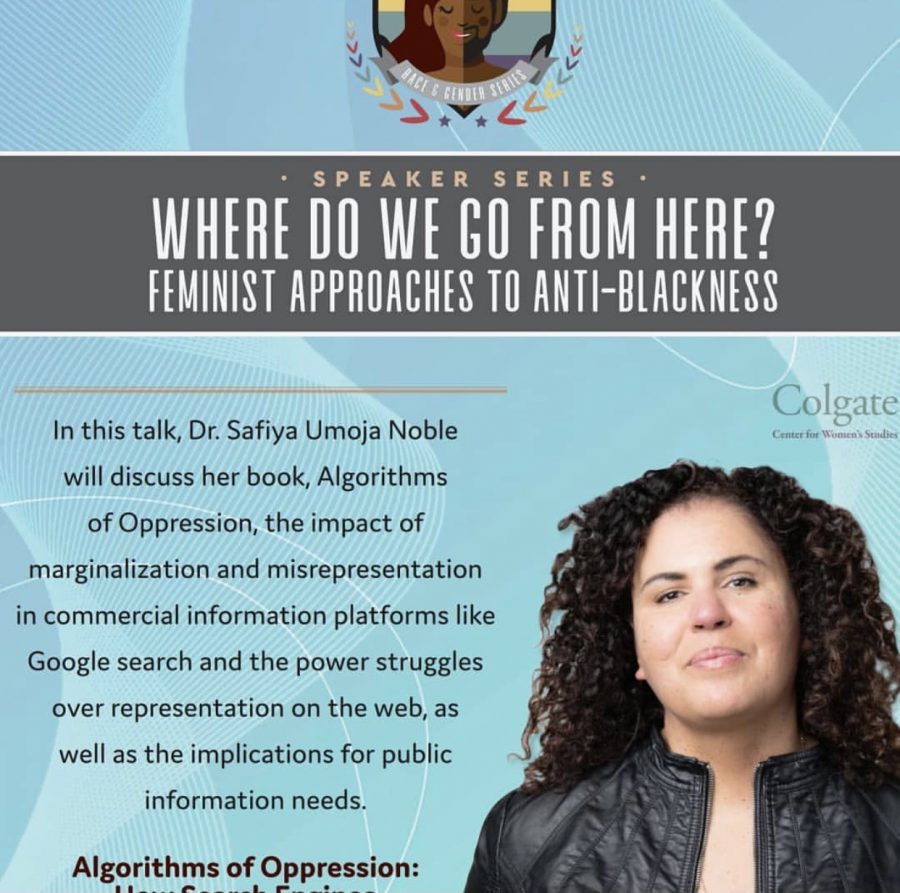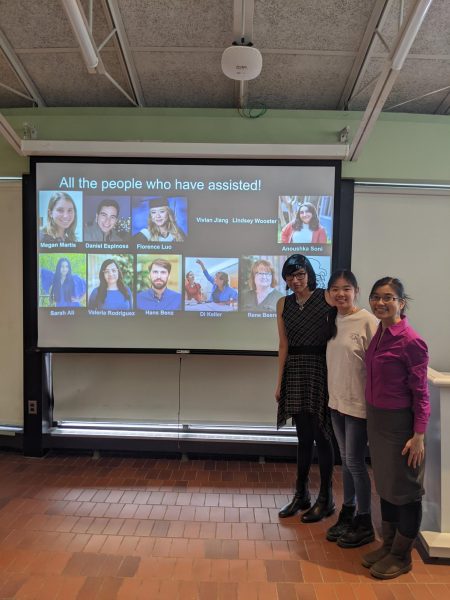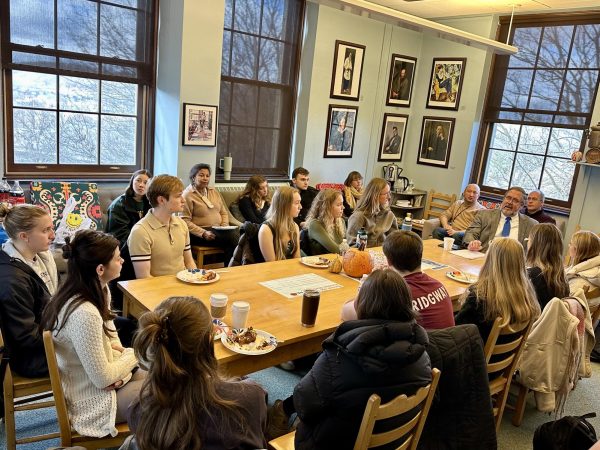WMST Begins Race and Gender Series in Response to Restricted Brown Bags
Last semester, the Center for Women’s Studies introduced the Race and Gender Series, a sequence of virtual lectures and conversations featuring experts in the women’s studies field. Created as an addition to the Center for Women’s Studies Brown Bag Series, which has been restricted by COVID-19 social distancing regulations, the Race and Gender Series focuses specifically on the social implications of the interaction of race and gender.
According to Director of the Women’s Studies Program and Associate Professor of Peace and Conflict Studies Susan Thomson, the series creates the same space for discussion as the Brown Bag Series, but on a larger scale.
“We decided that because the university had closed and we could no longer hold our Brown Bags, we would instead have sort of a national level speaker series addressing stuff that was happening in society, like the ascendance of Black Lives Matter,” Thomson said.
According to Thomson, the Center for Women’s Studies is currently undergoing an external review to give students the opportunity to share feedback on how the center operates, and the department’s programming schedule is subject to change pending student input. But Thomson imagines the Brown Bag Series would occur on a biweekly basis in addition to monthly Race and Gender speakers. In selecting speakers, Thomson suggested that alignment with student and faculty interest is the primary consideration.
“We don’t really select speakers in any sort of hectic way,” Thomson said. “If it accords with the teaching of faculty or the interest of students, we reach out to the speaker and ask to do a campus wide talk and then set up a podcast. We have one of our student interns recording a podcast with each of the speakers, so [she] is using ideas and concepts she used in her Intro to Women’s Studies class to speak to experts in the field.”
Each podcast is around thirty minutes and offers an accessible, brief discussion between Becca Sam, sophomore and Women’s Studies intern, and a scholar. According to Women’s Studies intern junior August Halbach, the podcasts are intended to be in-depth conversations about what race and racial injustice look like in America today.
“Speakers are experts in their fields, so the podcasts are full of insightful analysis and opinions on one of today’s most pressing issues, and what we should be doing next, including how white folx should step-up and help the fight move forward and how BIPOC communities can heal and reflect on their personal and socially-inflicted trauma alongside a student who is going through similar things,” Halbach said.
According to Halbach, the lack of Brown Bags has been difficult to navigate as the lectures brought students into the WMST environment. Junior Logan King echoed Halbach in emphasizing the impact of sharing a physical space during the Brown Bag Series.
“I think that one of the best parts of Brown Bags is being able to meet different students and connect with different professors in person,” King said. “It’s a great opportunity to converse with students and faculty with whom you have a shared interest. However, it could be easier to ask questions over Zoom which could foster conversation virtually.”
According to Halbach, while the community aspect of Brown Bags is difficult to replicate in accordance with Covid-19 procedures, the podcast offers a way for students to interact with women’s studies’s intersectional ideology and practice on their own time.
“The pandemic has obviously introduced new personal struggles to countless college students, so it’s often hard to get a lot of traction for one single event the way we could with Brown Bags in the past,” Halbach said. “The podcast allows students the freedom to kind of ‘take a class’ whenever they have free time that also is applicable to their everyday lives and furthers worldly compassion.”
Integral to the Race and Gender Series is a feminist approach to anti-Blackness which, according to Women’s Studies intern sophomore Becca Sam, relies on recognizing the interconnectedness of oppressive systems.
“It is important to note that patriarchy and white supremacy are interwoven,” Sam said. “If we want to see liberation, freedom and rights for all, feminism must hold space for the experiences and realities of Black women.”
Thomson echoed this sentiment, suggesting that systems of oppression operate differently given people’s unique experiences and environments. According to Thomson, a cornerstone of a feminist approach to anti-Blackness is an understanding of the fluidity of identity.
“I think the biggest thing that anti-Blackness work teaches us is that identity is not static. A lot of us treat identity as something that is firmly fixed and holds over time. Identity changes by context and by issue and by ideas, so I would encourage students to think less firmly about identity. Identity is far from static and it varies by who is in the room, which room we are in and what the subject matter is.”
Though the WMST department has sponsored several events, Thomson is reluctant to pick favorites.
“They’re all valuable and important in their own way and I learn from each author and speaker,” Thomson said. “Students say things like ‘I know I’m privileged,’ but the fact that you acknowledge your privilege doesn’t do anything to undo the systems that you benefit from, so let’s go further. I think each speaker has systematically provided tools for people who are white to understand how they benefit from the system and also how the liberation of Black people is tied up in everyone’s liberation.”
Next month, the Center for Women’s Studies will hist Safiya Noble, UCLA professor and member of Oprah Winfrey’s advisory board, to speak virtually about racism in online algorithms.









